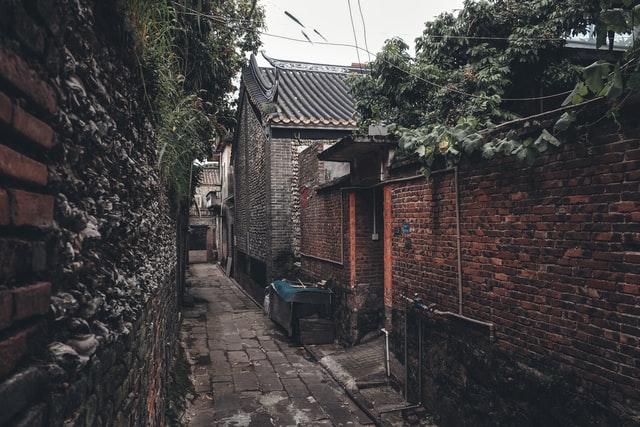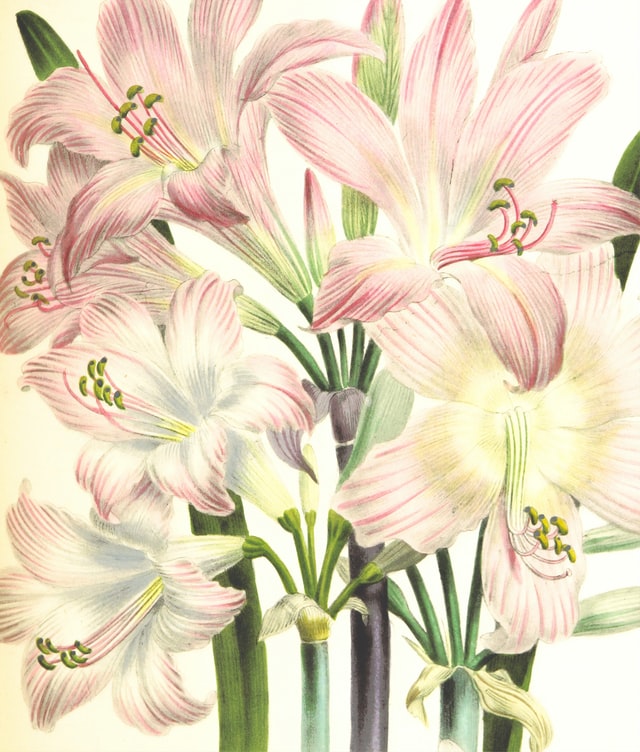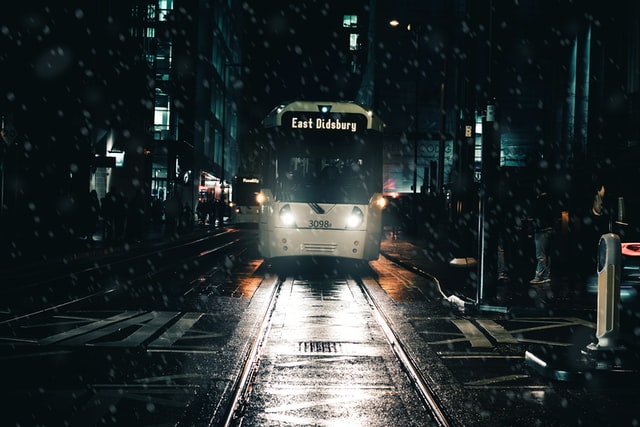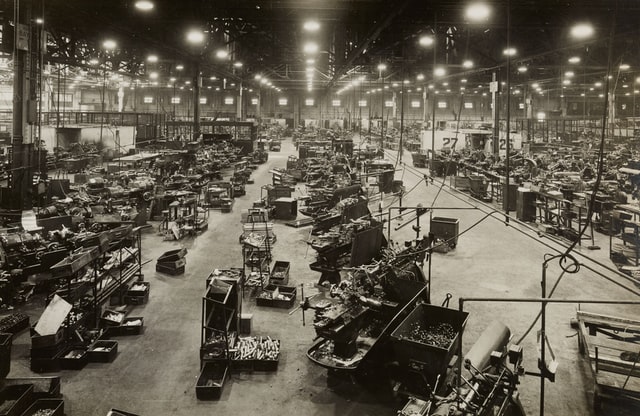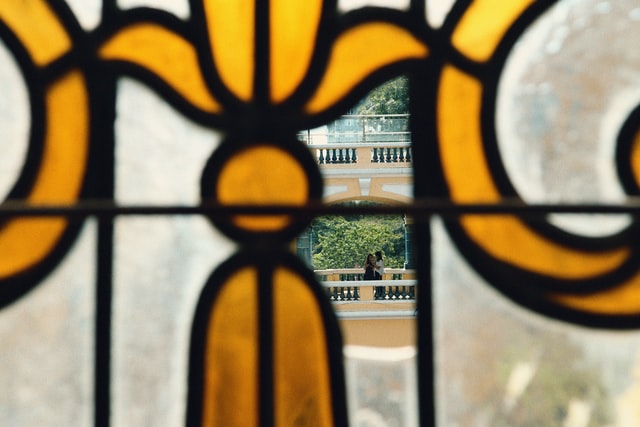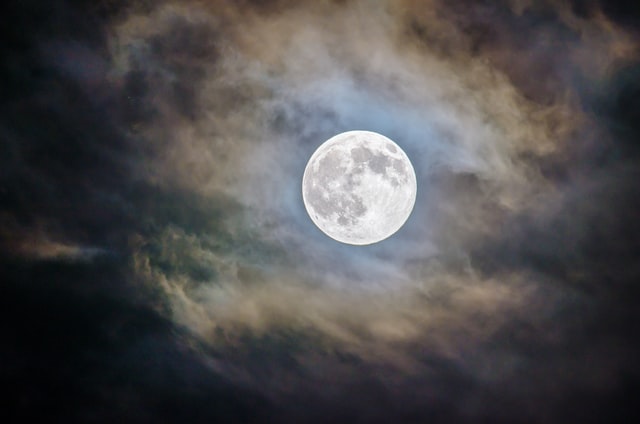Dedicated to Arianna and Sabrina
Chapter One
The coffee was cold and tasteless. I sat in this dim room for nearly 45 minutes before the detective arrived. He wanted answers. I wanted answers. However, I was not one to be forthcoming when treated as a criminal.
The door opened and in walked Detective Finch. We met, briefly, at the farmer’s market sharing our fondness of fresh fish and exotic recipes. Had this not happened, we might have shared more.
He sat across from me and opened the conversation with his aw-shucks boyish charm he had on display the other day. He did it for me and it completely disarmed me of all of the apprehensions I collected since the morning.
“Can I call you Gillian, Miss Adler?” So formal for a man he knew I found charming. I would prefer a more casual attitude, but under the circumstances, I can understand his by-the-book procedures.
“Yes, please call me Gillian.”
“Alright, for the record, Gillian, please tell me again what you believe happened to your sister.” The clock on the wall indicated it was just past 8pm.
This was going to take time.
“My sister, Kaylee Ann, is two years younger than me and ten times more adventurous. She is prone to serendipity, stunts, capers, romps, and escapades, the nature of which, even I would not disclose to her if I were today’s protagonist and the situation was reversed. Kaylee Ann only recently graduated from college and managed to schedule an interview with her dream company, in television production, in New York City by the end of the month. She told me of her plans for her cross country journey during the month of time she had prior to the interview. She debated between a picturesque train ride or renting a car. I insisted she rent the car to remain free from scheduling and layovers. I even offered to pay for it. She pouted during my insistence, but eventually acquiesced. I chose one of those dependable hybrids. A canary yellow one. The man behind the counter gave me a great deal and said Kaylee Ann could return the rental in a variety of nationwide locations. She seemed more excited about the interview than the 3000 mile solo drive.”
Here I began tearing for I was the insistent sister who might have engendered Kaylee Ann’s disappearance. “It has been a week since my sister checked in with me or any of her social media accounts. I left message after message without a single response. This was typical of Kaylee Ann when she is so deeply involved in her own world that she forgets there are others in it that care about her.”
Now I began crying. I informed Detective Finch that the car rental company found the Leaf abandoned in the parking lot of the rental company in Reno, Nevada. “The handwritten note she left gave instructions to cancel the contract.” Detective Finch took the copy I had.
“Is this common for your sister? To abruptly change plans without consulting with you?”
From what little bit I know of him, the detective is a most unusual man. He spells his first name with two d’s and asks leading questions with ease. Normally, I would continue with the narrative myself, but, between my tears and the trouble my sister is putting me through, I decided to follow his lead.
“Yes to both questions.”
“Miss Adler, Gillian, do you believe your sister is missing?” Sidd (Detective Finch) was a good ten years older than me. His concern was the concern of a father with a missing child. Kaylee Ann was always this way, but never for this long. I told him no.
“Do you believe she is in trouble or dire circumstances?”
Once again, I had to say no.
“Then, Gillian, how can the Sacramento Police Department help you?”
Considering her past, I did not have an answer to his question.
Chapter Two
Gillian is uptight. Always has been, always will. I kept reminding myself of how she became this way, this motherly way, when our parents died right after the end of my sophomore year in college. I was drowning and she kept me afloat. For that, Gillian receives perfect 10’s from me. However, now that I am out of college, Gillian should understand that if she wants to continue being a mother, maybe should find a guy and have a few kids of her own.
Such was the excuse for all of my sudden adventures into the great unknown. Today was no different. Here I am, on I-80, in a hybrid car, with a map, leading me to my future. I could wow them at the interview and work in production studios for the next 50 years if everything goes well.
Fifty years of New York City is also a double edged sword. I would have the pulse of the nation but also be a victim by keeping that pulse. Others would see the world, live out their dreams, visit exotic locales, and meet exotic people. I would know about such lives, but would I have one of my own?
Reno, Nevada is the Biggest Little City in the World. If I cannot find an adventure there, I don’t deserve one of those coveted lives I hope to one day acquire.
I thought the entirety of my thoughts, over and over again, as I began walking away from the Nissan and the car rental place. I left written directions in the car. The dealer can refund the unused time back to Gillian. A Nissan will not create adventure. I have one backpack and one suitcase. I also have 29 days to make it to the Big Apple to fight for the job of my dreams.
Nevada is too dry, too hot, and too far to walk for too long. I put up a thumb to hitch a ride into Reno. Four cars passed without slowing down. The fifth, an old tow truck came to a halt.
The driver looked out of place behind the wheel. His cowboy hat and farmer tan lines gave away his occupation instantly. I told him I wanted to find a hotel for the night, maybe get a bite to eat, maybe hit a few slots.
He didn’t believe me.
“The way I see things, you look like you were just dumped or are running away from someone who needs to be dumped.” The straw in his mouth added another level to his desert cowboy mystique.
“If you want a ride, it is only three more miles to the edge of Reno. I could use the company.”
I gave him my best pout.
“OK, you got me. I will even pay for dinner for both of us.”
I can read a man and get what I want. I always have.
It took a minute to climb up into the cab with my luggage. Eventually, I place them both on the floor and rode with my feet up on the dash. He didn’t speak, but he was looking. I decided to break the ice instead of waiting.
“My name is Kaylee Ann. What say you cowboy?”
Normally, a man this interested, and also interesting, stumbles across his words as they leave his mouth. Not this cowboy. He took his time. The gears of the truck responded to his touch as he accelerated on the interstate. Eventually, he chose his words carefully.
“That is a right pretty name you have Miss Kaylee Ann. They call me Josh, Josh Wallerp. You can call me Josh. I am glad to make your acquaintance.” I do believe under a different set of circumstances, this Mr. Wallerp might have accepted my hand, following with a small kiss, had I extended it.
We spent the next two hours at Jorge’s BBQ at the intersection of 659 and 647. This was not by accident. Upon arriving, Josh gave his truck keys to Jorge’s son, Miguel. Then we sat down to a dish of flauta encantada with chile verde in tomatillo sauce, the house special. I told Josh I was heading to New York City. He told me he had never been there. I think the term he used was “crowded”. I expected something worse and applauded him with “discretion is the better part of valor.” He returned my parry with Falstaff’s original quote, “Caution is preferable to rash bravery.”
I sat there dumbfounded as Josh Wallerp transformed from a desert cowboy to a Shakespearean quote master. Then he kept eating again bringing me back to his cowboy reality.
The margaritas and the music came stronger than expected. Josh ate with gusto, but drank very little. I saw advantages in the reverse.
By the time we left, Josh, ever the gentleman, escorted me to the truck. Or shall I say, trucks. Now I had to ask. “Josh, when we arrived, were you hauling a pickup truck? I don’t remember a pickup truck attached.”
I do not remember anything after that.
Chapter Three
I do remember when I awoke. I was in the passenger seat of the tow truck, Josh remained at the wheel. A quick look backwards and we had the pickup truck in tow.
The sun had already set.
Mr. Wallerp didn’t take his eyes off the road when he addressed me.
“Miss Kaylee Ann, we are still on I-80, heading east, making somewhat poor time. You told me you no longer had a car and you desired to head east to New York. Well, ma’am, we are just past Winnemucca and state route 95 in Humboldt county. There is a fine ration of reasonably priced hotels and a rental car company up ahead. I know the first are open and the second will by 9am. This is my drop point for the truck, so we will be stopping soon.”
I could have screamed, but I chose against such measures. I had been in worse predicaments and Josh was correct as he exited the interstate and pulled into a hotel next to the car rental.
“It has been an honor riding with you Miss Kaylee Ann. I trust the county accommodations are to your liking. Ask for Rita, she is the proprietor and she will fix you right up.”
I wanted to ask Josh a few questions, but he seemed more interested in making the delivery of the pickup truck than engaging in further conversation.
“Perhaps we will see each other again?” I kept my question light so as to avoid delaying him.
“Parting is such sweet sorrow, that I should say good night til it be morrow.”
“Since when did you discover Juliet as your muse?” I had to inquire as I walked backwards to the hotel. Over the sound of the tow truck’s engine, I do not believe Josh heard my voice. However, given his unusual nature, I wouldn’t put highly honed lip reading skills past him.
Within thirty minutes, I was asleep, with a fully charged cell phone, no bars for reception, and few worries about tomorrow.
I awoke craving a good cup of coffee and a plate of anything worthy of eating. Rita greeted me with both at her breakfast table. She also watched me with a mischievous grin reserved for nosy aunts and ordained matchmakers who know too much and desperately wish to know more.
I could only take so much of this “I know a secret” smile of hers.
“I don’t wish to be rude, but why are you looking like that at me?” It was my opening verbal salvo, not my invitation to join me for breakfast.
Rita sat down next to me and fixed her eyes at the window. “Young lady, whatever you did took.” She then nodded her head for me to fix my eyes in the parking lot.
There stood Josh, without a shirt washing his face and chest. He must have already shaved and combed his hair. In the morning sun, his muscles were most impressive. Apparently, I was not the only one to admire the view.
“Rarely does one see such a spectacle return in these parts. There must be some reason for him to be here. Young lady, what might you think that reason could be? Hmmm.” Only her passion for eating her own cooking from my plate kept her from continuing her own conversation.
With my bill paid in full, I took the hint, gathered my belongings and excused myself from Rita’s most humble quarters. Quickly, I snatched the last sausage biscuit from Rita’s grasp.
She knew it wasn’t for me.
I snuck up on Mr. Wallerp and absconded with his flannel shirt. Later, he informed me the aroma of the biscuit precluded my arrival. I believe it was the shaving mirror that gave me away. Either way, he earned the morsel.
I noticed his shirt was clean, but not pressed. It was somewhat threadbare and could use a seamstress’s handiwork. Before I gave it back, he noticed that I noticed and became shy about its condition. I told him I could sew a few stitches to tie it over if I wasn’t going to rent a car that morning.
“Miss Kaylee Ann, I am going to hold you to your promise. I came back here early to find all of the rental cars are currently reserved for the day, maybe two days. Being so, I will offer you another day’s ride, eastward. It just so happens that I have another vehicle to tow and we both have a reason to share a ride.”
Now Josh was grinning.
I put the pieces together even though I didn’t for the life of me believe that story about zero rental cars. He knew it was a whopper, but as long as he was acting, I played along.
“I have always depended on the kindness of strangers.” Not my best Blanche DuBois, but he understood my point. With that, I turned on my heel, tossed Josh’s shirt on my shoulder, grabbed my bags, and headed to the tow truck. I saw the sedan secured, ready for its tow. I also saw Josh finally realize that until I mended his shirt, he would have to drive topless.
A quick look back to Rita’s only confirmed that her eyes never left the two of us.
Her smile was my smile that morning.
Chapter Four
Josh began the drive wanting to ask questions. I held his shirt out the window and he understood. I was going to push this cowboy gently for the duration of the ride. I enjoy having things my way.
It didn’t take more than few hours to pass both Elko and Wells. By then, I finished the repairs on his shirt. I took my time to smooth the wrinkles and properly fold it. I set the finished product on the seat between us. Josh noticed the extent of my handiwork.
“Aren’t you going to say thank you, Mr. Wallerp?”
Josh kept his eyes on the road and his speed to a constant fifty miles per hour. His driving skills never deviated. His reply to me, did.
Josh was singing. Not just any pop song or cliché country tune, Mr. Wallerp, Josh, began softly singing what he would later reveal to be one of his own creations. It wasn’t finished and he cannot carry a tune, but I secretly recorded him every time his concentration drifted.
May a sleepy head
find it’s solace in a secure home tonight
May the final bed
dissuade the pilgrim to roam not despite
The comfort of the dawn
is a comfort best shared by two.
Let no consolation
be valued as more than just true
Envision the rising sun revealing its worth
Tally each morning with a quiet sense of mirth
Take the paths no maps reveal as sincere
Challenge the forecasts declined from such fear
When he finished (there must be so much more), I wanted to ask questions. This time, Josh took the shirt and held it out the window. Part of me wanted to laugh. Part of me wanted to hear more. The last part kept my mouth shut and eyes open.
This cowboy knew he was I-80 eye candy today. Who was I to complain?
We made the Nevada-Utah line in a few hours and pulled over, both to drop off the sedan near Wendover and to refuel. Josh grabbed his shirt before I became mischievous. I remained in the cab during the drop off, but not the refueling.
“Tell me about this truck. Is it yours?”
Now Josh revealed his true nature. He spoke as a cowboy, posed as a surfer, but his words were that of a mechanic.
“What you have been riding in is my 1971 International Heavy Duty Model 210 truck. I pieced together the engine and rebuilt the body, but otherwise, it is stock. I primarily use this for freelance towing and that brings me to today’s proposition.” He was adjusting his flannel collar with that last sentence.
“And what proposition do you have for me today?” I know I played the coquette as I spoke each word. Josh must enjoy the flirtation. I know I did.
“We have an opportunity, if you are up for it.” My eyes gave him the go-ahead to continue. “I have a few friends who live off the grid a few miles from here. I have an open invitation to stop by and I thought, if you have the time, that you might want to tag along.”
“Well, I appreciate the invitation if you’re sure your friends won’t mind, but it will come at a price.”
Now Josh looked a bit confused. “You are charging me for my hospitality?”
My reply was as well thought as it was serious. “Mr. Wallerp, for me to be your escort for display to your friends I will require you to perform three services for me.” That caught Josh by surprise as witnessed by a single eyebrow raised almost as if he was Vulcan and would immediately respond with a “logical”.
“My first request is to hear the entirety of your song. The beginning fascinates me. I have high expectations for the conclusion.”
Josh interrupted, once again without his eyes leaving the road. “What is what I was mumbling was a work in progress.” I informed Josh that he had better get motivated, soon.
A few moments of silence before I divulged my next requirement, I wanted to hear his life story. No cowboy drives a tow truck for a living. No cowboy quotes Shakespeare on demand. I know I was on shaky ground, but I possess a bit of both Scarlet O’Hara and Blanche DuBois DNA and have become accustomed to getting what I want.
It took Josh a few miles and the creation of a minute long pregnant pause before he acquiesced to my penultimate “request”.
Now I usurped Josh’s pregnant pause mandate and increased its duration exponentially. I wanted Josh to believe I was in a state of deep reflection, cognizant of my limitations and resolved to word my final ”request” with extreme care. I held my voice for nearly fifty miles as I watched some of the most spectacular landscape put forth as my personal eye-candy to admire and wonder if I could own.
It seemed forever before Josh took the initiative by clearing his throat. He said we arrived at the sedan’s point of disembarkment. He also included the necessity of a red dye diesel purchase. I made eye contact with the only road sign on this stretch of Interstate 80. It identified no visible roads or landmarks, not even the rundown fuel station. The ominous sign read, “Point of No Return”. I felt my heart sink upon reading this possible prognostication.
I felt diametrically opposite when I witnessed Josh raise each of the proprietor’s small children as a favorite uncle might when passing through. Greetings were exchanged. Hugs were given. Josh even laid a hand on the pregnant misses midsection. His action was approved by the members of the family.
From my window seat, I saw what Josh could be, perhaps what he already was.
He shook hands and waived goodbye. The 210, with a full tank of diesel, two exterior drums of diesel (strapped to both sides of the tow arm), sans a sedan load was ready to depart. I watched the children discover a bag of treats from my side view window. It was then that I revealed my final request.
“I want to be dazzled.”
With that, Josh removed a blindfold from the glove compartment. He told me that his friends do enjoy company, they do not enjoy company discovering their location.
I hesitated.
Josh asked as we drove in first gear, never actually reentering the interstate, to trust him.
With the blindfold in place, I never saw where Josh began off-roading with the 210. The truck took the bumps better than I did for all three hours both of us endured.
When the 210 came to a rest, Josh turned off the key.
“Miss Kaylee Ann Adler, you may remove the blindfold and be properly dazzled.”
Chapter Five
I was skeptical. I was accustomed to much better treatment at the hands of those I permit to my close proximity. But, that was then and this is now.
I am dazzled.
The night sky in Utah, if I am still in Utah, is darker than I have ever seen. The stars, by contrast, are magnificent. I have never been this far from civilization, this far from anywhere. What I am witnessing can make someone believe in God. Before me, in the night sky, I am seeing more stars than I thought possible.
“What you are viewing is the edge of the Milky Way galaxy, our galaxy. Most people never even know you can view our place in the Universe. Fewer still even bother to move away from the city lights that block such a spectacle.”
It was as if the entire galaxy presented itself, on edge, just for me. I saw clusters of stars trimmed with hues of pink and purple the likes I have never witnessed previously. Billions of lights rotating in a perfect pattern, a synchronicity of unimaginable proportions and choreographed not by the hand of man.
I stood in awe as Josh spoke.
And suddenly I had the urge to find his hand among the glow of the stars above.
“Greetings!”
That single word closed the door on a serendipitous opportunity a single day earlier I would have never believed possible. I had an impulse, enhanced by the ambiance, now lost by the company.
I quickly collected my thoughts in time for Josh to introduce me to la familia Gonzales.
First up was Pedro, then his esposa, Guadalupe (Lupita for short), and their eight children.
Considering my intentions just moments before, such an introduction seemed overwhelming.
Josh tossed the keys to the 210 to Pedro’s oldest sons so they could move it under a shelter and (from what I heard) remove the two large drums of diesel. The other children smiled as Pedro moved Josh from my near proximity. The stars, once inviting, seemed as distant as scientific reality. My face showed my disappointment.
“Mira”, Lupita spoke now as an old friend than a new acquaintance. “The stars hold their magic every night. You will find that moment again with Señor Wallerp.”
With that, the galaxy, if it were looking my way, might see another radiated glow. Lupita obviously did.
The rest of the night was a cacophony of unrehearsed eating, drinking, (poor) singing, story telling, and feeling more welcome in a stranger’s home than I ever had before. The children took turns attending to the pregnant cow or washing and drying the dishes. Lupita orchestrated each as a maestro would. The food was delicious, Josh exchanged a few presents, Pedro spoke of high taxes, all the while the little girls giggled and waved at me. Lupita took up knitting as a ruse for listening that would rival the best skills of a spy. It was obvious Lupita ran the house and the contents.
Eventually, it was time to retire. Pedro assumed Josh and I were together. Lupita planned otherwise. Her oldest daughter, Maria, offered her bed in a gesture of good will and avoidance of impropriety. Pedro understood and offered no complaint. Josh sensing the mood of the moment, took up with the oldest sons for the night. The little girls continued to giggle, aware of too much for children their age.
One last look at the heavens, one last thought of what could be. Some could call this reflection a dream. I would argue a wish might be more appropriate.
I still have time before my interview to resolve my doubts on events so far.
But tonight, Josh was correct. I am dazzled.
Chapter Six
Maria aggressively awakes me from my slumber. Looking out the window, the night sky defaults from the wonderment of ago to the bland of the norm I am so accustomed. I would enjoy spending the night watching its full performance. I would enjoy having someone watch with me.
Maria has other ideas.
“Corre!” It was the full extent of Maria’s voice. Her pull on my shirt emphasized my lack of translation skills and urgency of voice. One more “Corre!” and I was upright and mobile.
Lupita met Maria and I at the “barn” where we found Pedro and Josh attending to the pregnant cow. Pedro informed us that it was going to be a difficult birth, possibly breech, and the mother’s life was in danger. Josh said I was there to help in the birth. Pedro said his sons went looking for the vet. They might return in two hours. The cow did not have that long.
“What do you want me to do?” It was all I could ask. Unless Josh spoke, I was going to remain paralyzed, almost catatonic.
“Pedro will glove you up while I keep the cow as calm as I can. You are the only person here with arms long enough and shoulders narrow enough to reach in and turn the calf. You might have to feel for the umbilical cord. If it is wrapped around the calf’s neck, you will have to untangle her first, before you turn her.”
Josh might have told me to save the world. I could not do any of what he asked. Lupita and Pedro began removing my shirt (I had on a t-shirt) and placing my hands and arms into the longest gloves I ever saw. They reached up to my shoulder blades. Pedro connected them with duct tape across my back to hold them in place. Lupita placed an old pair of painter’s goggles across my widened eyes.
It did not help.
It was all Josh could do to hold the cow in place. She was suffering. I clearly heard her cries from an impending birth and more than associated pains. I understood the necessity of the painter’s goggles to obscure my view of the discharges from the cow.
Neither forms of protection helped against the foul odors of trouble.
I could not move. I heard Josh’s instructions, but I could not move. Pedro began forcing me to move, but I struggled against his will. This was beyond my comprehension and capability.
If it were not for Lupita, I would have never acted. She took my gloved arms and told me to look at the cow’s eyes. “The cow knows you are here to help. She wants you to help. She will take the pain all mothers will endure for the health of their children.”
I looked at the cow’s eyes. I found truth in what Lupita said. Don’t ask me how, but I did what Josh asked. I knelt down to where Pedro directed, and for the first time in my life, said a prayer.
It took all I had to force both of my arms into the fully dilated cow. It took all Josh, Lupita, Pedro, and Maria had to hold her down during the process.
Time seemed to stand still.
By morning, the veterinarian informed all of us that the birth was a combination of breach and nuchal cord. While the latter is usually harmless for humans, the combination of both is usually fatal for bovines.
Such was the case for both mother and calf.
Dawn brought the silence of grief for the family. Today was an unrecoverable loss for the family. The joy of the night before could not permeate the sorrow hanging like a plague today.
The giggling girls avoided me foretelling of my immediate departure. Lupita told me otherwise, but the look from Pedro confirmed what I knew for certain.
The wildcard in this disaster was Josh. I found him at the 210, on his CB radio, speaking to a woman he called Lucy. While not oblivious to my remorse, Josh was unusually elated in hearing this woman’s voice. She spoke of meeting him at the airport in Salt Lake City. His face revealed the smile of duplicity. How can he make a date on a day like today? How could Josh not feel anything?
I declined breakfast and urged Josh to return to the interstate with due haste. I slept the entire way ignoring his pleas for me to wear the blindfold. He did his best to double back a few times, but I didn’t care. All I wanted was for Josh to arrive in Salt Lake City. I was sure, by then, I could call Gillian and explain my misfortune.
By dusk, the 210 puttered into Utah’s capital and the end of the line for both us. Ironically, only I knew why. During the trip, Josh attempted to pry any emotion expression from me. He never pressed, but given the duration of the trip, he never relented. I might have been able to engage in the conversation, had I not heard her voice over the CB radio. She could not be a casual acquaintance nor a recent acquisition for how many people know how to find each other with a CB? This must have been prearranged. I must have been some sort of trial run, discarded when I could not perform to expectations. The cow was my litmus test and I failed miserably. To think how close I came made me not want to think at all.
I just wanted the day to end.
Chapter Seven
The lights of all large cities are visible before their skylines. Salt Lake was no different in that regard. While I have never visited in person, I made the best of a bad encounter. A glimpse at my phone ensured a full charge and all five bars.
Josh found truck parking for the 210 at the edge of the airport’s lot.
“Miss Adler, if you have the time, there is someone here I would like you to meet.”
So indignant was Mr. Wallerp, he could not just set me free, he had to rub my face in his sordid life. I was almost willing to grab my bags and walk away, when I ventured further into territory unknown, even for me.
“Why yes, Mr. Wallerp, I would be eager to meet one of your friends.” Gillian, my sister, who should be worried sick by now, and would later have to pick up the remnants of my shattered life, would be screaming for me to take the high road. She would urge a peaceful exit avoiding the ugliness such a situation would bring.
I will take Gillian’s sage advice on any other day. Just not today.
For today will be a reckoning both of promises not made and promises intended. I would publicly have it out with Josh with his harlot Lucy. I would give him an earful and make sure the two of them never forgot the name, Kaylee Ann Adler.
So I walked with Josh, close enough to be a couple, far enough apart to be a serious couple. Josh did not detect the full extent of my body language. For while I am not a scorned woman, I could be.
That alone was my impetus for action.
It is funny that in such a large airport, we located Lucy in such a short time. She sat at one of those small cafe tables, alone, waiting. Her hair was perfect. Her smile was perfect. She was probably one of those brainless models who get paid to wave her hand and toss her hair. When Josh and Lucy made eye contact, she rose and ran, as did Josh into each other’s arms like two long lost lovers.
My blood was already boiling.
Still in each other’s arms, Josh turned as Lucy gave him a kiss on the cheek. Now it was his turn to turn rosy red.
“Kaylee Ann, I would like to introduce you to . . .”
I cut him off when I said, “Lucy”. This disdain in my voice did not go unnoticed with her.
During the next five minutes of accusations and intolerable levels of yelling, I never gave Lucy a word edgewise. I never stopped my accusations until airport security escorted me and my bags away from Josh and Lucy.
Josh turned to grab me, but Lucy took his hand and pulled him back to her. Josh was as paralyzed as I the night before.
He made his choice an it didn’t include me.
Fortunately for me, no one pressed any charges, but I was under house arrest at a nearby hotel. I was not to leave until Gillian, my sister, arrived to sign for me. Her new boyfriend, Detective Sidd Finch of the Sacramento PD brokered the deal. Gillian would arrive by morning. She would have as much explaining as I for the week.
Chapter Eight
I attended Gillian’s wedding (elopement) with Detective Finch. She kept the affair small but the available pool of available groomsmen large for obvious reasons. Yes, I flirted with most, gave my phone number to a few, but found none of the candidates anything more than a substitute, not a solution, to my broken heart.
Gillian, on the other hand, began a full-steam-ahead mission to move Detective Finch and her into the realm of parenthood ASAP. And she accuses me of impetuous behavior!
As far as my interview goes, this time, I flew to NYC, and booked a room in an affordable hotel within walking distance of the interview. I prepped more than any candidate should and became confident that my, and only my ability, would prevail.
On the morning of the interview, I walked the block to the rendezvous, assured I would be seeing more of this great city in the decades to come.
I entered the Plaza and greeted the concierge. He had my name on his list and asked to wait in the preassigned room, for I was not the only one considered for the position. I thanked him and remained standing awaiting my destiny.
Then she entered.
She being Lucy.
“Lucy Wallerp, sister to Josh Wallerp” is how she introduced herself as she extended her hand.
When I awoke, I found myself on the upholstered chair, the concierge and his first-aid kit in attendance, with Miss Wallerp biding her time until I revived.
“Miss Adler, it seems you have had a very exciting month. Is there anything you want to say?”
I lost it right then and there. I apologized for my airport spectacle. I apologized for my verbal tirade. I apologized for hurricanes and earthquakes.
It didn’t help.
“Miss Adler, let me have the floor for a moment. After your departure, I had a long talk with Josh. It took all of a few seconds to understand your position and your emotional outburst. In fact, I had to explain to my brother why you did what you did. I do believe he is most clueless about certain aspects of life.”
I tried to hold back a tear welling prior to its eventually release.
“What you did was impressive. It shows courage in the face of impending disaster. For that I commend your assistance to Pedro and Lupita.”
“However,”
Now I began to cringe and by the look on my face, Lucy knew it.
“However, coupled with the entirety of your time with my brother, I find you are not the best candidate for the position in television production. You are impulsive and careless, almost reckless, in the chances you take. Do you often accept rides from strangers on a whim?”
I knew I should answer, but I couldn’t. Gillian had been tough on me in Salt Lake City, but not this tough. I felt as if I was in the Principal’s office.
“However,”
Now I felt nausea rising up, ready to overtake whatever decorum I had remaining upon hearing Lucy utter that word again.
“However, if you are interested, I can offer you the opportunity to interview for another position. A position I do believe would be better suited for your skill set and temperament.”
My inquiry was as brief as Lucy’s remaining time with me that day. I accepted the file she offered and book contained within.
I had to make quick work of its contents.
Chapter Nine
Within a week, I scoured all of Sacramento (and surrounding areas) for an authentic (factory) front axle with a 1 and 39/64 inch large end diameter knuckle pin; one of the last of its kind. This was my insurance, my hole card.
Then, I contacted Miss Rita of Winnemucca, Nevada. We talked for an hour or so about my previous stay and how we could work together in a mutually beneficial manner. She asked just how “mutually beneficial” this arrangement could be. I asked if she had an internet connection and a money transfer account. Within minutes, she adopted my reasoning.
Then, with the assistance of my new brother-in-law and his access to vehicular databases, all I had to do was wait. I did take a week of CDL driving lessons in the interim.
It took four days of planning, two days of purchasing, and eight days of waiting before I lured my catch with my bait. Sidd told me of a small town in Beowawe, Nevada, near the Homboldt River with a garage awaiting a delivery of a singular item. Gillian asked if I knew how to drive a vehicle large enough to make the delivery.
I informed my soon to be showing sister, if I couldn’t, it wouldn’t be for trying.
One call to Miss Rita to confirm the package will arrive.
One call to the local car rental to confirm the delivery vehicle was available.
Three days to make the trip.
In the 72 hours I had at my disposal, thoughts on both sides of the emotional spectrum danced in my head. Sidd told me I was crazy. Gillian agreed. I rebutted with the lack of statistics concerning two week romances prior to marriage. They both blushed for they both knew, in my family, impulsiveness is hereditary.
I arrived on time at Rita’s, checked in, as she made the phone call. I even had time to freshen up while I waited.
He did come as he promised. Josh was shirtless and driving a canary yellow Nissan Leaf. He wasn’t surprised at the hoops he had to jump through to acquire the only forty-nine year old factory axle available anywhere in the free world he needed to get back on the road. He was a bit shocked with the hoops I had to jump through to make it all happen.
“Got yourself a rather large tow truck there Miss Kaylee Ann. Am I to assume the crate holds my axle?”
“It could be your axle if you meet my price. What say you cowboy?”
He began moving closer to me.
“You may say I am not much for Jasmine Perfume.”
“My dear Josh, are you quoting Blanche DuBois again?”
He placed his hands on my waist.
“Maybe I am.” Now he leaned in to kiss me. “But whoever you are, I have always depended on the kindness of strangers.” Now Josh kissed me as he should have many weeks ago.
When he finished, he still kept me close, still looking at me as intently dazzled as I was with the stars that singular night. He didn’t want to break the mood, neither did I.
However, there was the matter of a business deal to conclude and I have yet to establish my price.
“Josh, Mr. Wallerp, how long do you think it would take to tow that hybrid of yours to Beowawe and repair that front axle on the 210?”
“Kaylee Ann, Miss Adler, would that be with skills of one person or two?”
“Mr. Wallerp, for the sake of argument, since I am no longer wanted in New York City, but have a standing invitation to Thanksgiving Dinner from my future sister-in-law (I pinched his arm while saying that), let’s think about two people always keeping the 210 in good repair.”
“Miss Adler, or should I say, Mrs. Wallerp, then it might take a lifetime for two people to keep the 210 in such a state of repair.”
“Well, I am now capable of acquiring parts, parts I would exchange at this very moment, if you could acquire a single part, perhaps consisting of gold and a solitaire diamond?”
Few people have that boyish charm. Fewer still can pull it off upon demand. Josh was neither of these choices. His charm was sincere. It was I that hoped to emulate all he possessed.
I didn’t have to wait long for his answer.
It was one word to my proposition and four words for his proposition.
My answer was also “Yes”.
A quick look back to Rita’s only confirmed that her eyes never left the two of us.
Her smile was my smile that morning.
Andy Betz has tutored and taught in excess of 30 years. He lives in 1974, and has been married for 28 years. His works are found everywhere a search engine operates.



